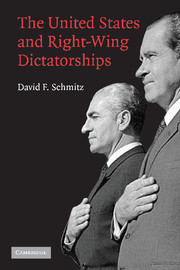1 - No Acceptable Alternative
Mobutu in the Congo
Published online by Cambridge University Press: 05 June 2012
Summary
In April 1965, Assistant Secretary of State for African Affairs G. Mennen Williams declared that “the Congo, along with Cuba and Vietnam, has been a top U.S. foreign policy headache for 5 years.” Yet by 1968 the State Department was able to report that “the Congo has gone off the list of critical foreign policy headaches” and that relations between the United States and the Congo were “excellent.” What accounted for this quick turnaround and new state of affairs was the November 1965 coup by General Joseph Mobutu (later Sese Seko Mobutu), and the United States' support for his action and the military dictatorship he established.
That the Congo would be a major problem equal to those of Vietnam and Cuba in the mid-1960s is, at first glance, surprising. Since the end of the slave trade and the European scramble for Africa at the end of the nineteenth century, the United States had minimal contact with and paid little attention to developments in what most Americans still referred to as the “dark continent.” Rather, Washington dealt with sub-Saharan Africa through the colonial powers, supporting their rule and policies. At the end of the 1950s, however, a new challenge faced American foreign policymakers: the decolonization of Africa. After World War II, the rising tide of nationalism abroad, increasing Cold War tensions around the world, the emerging civil rights movement at home, and the granting of independence to African states made it impossible for Washington to continue to follow the lead of the Europeans and allow the colonial powers to dictate American policy.
- Type
- Chapter
- Information
- Publisher: Cambridge University PressPrint publication year: 2006



